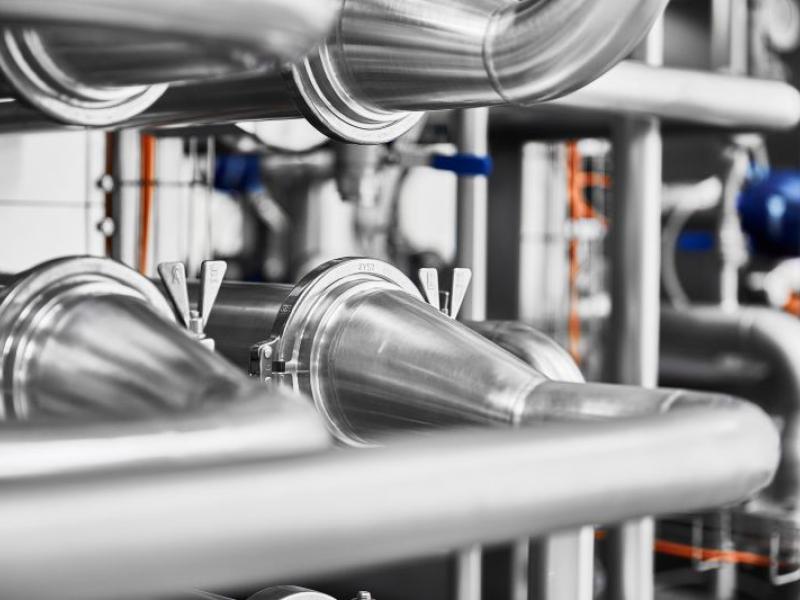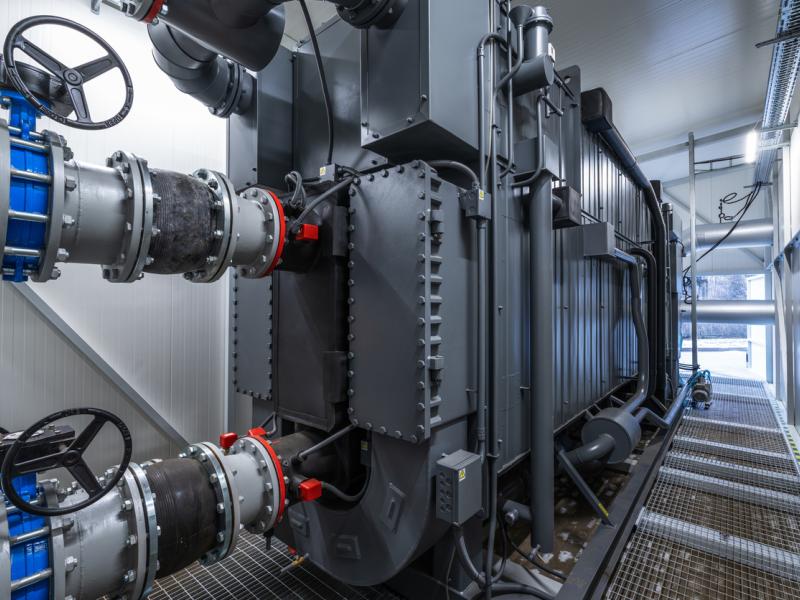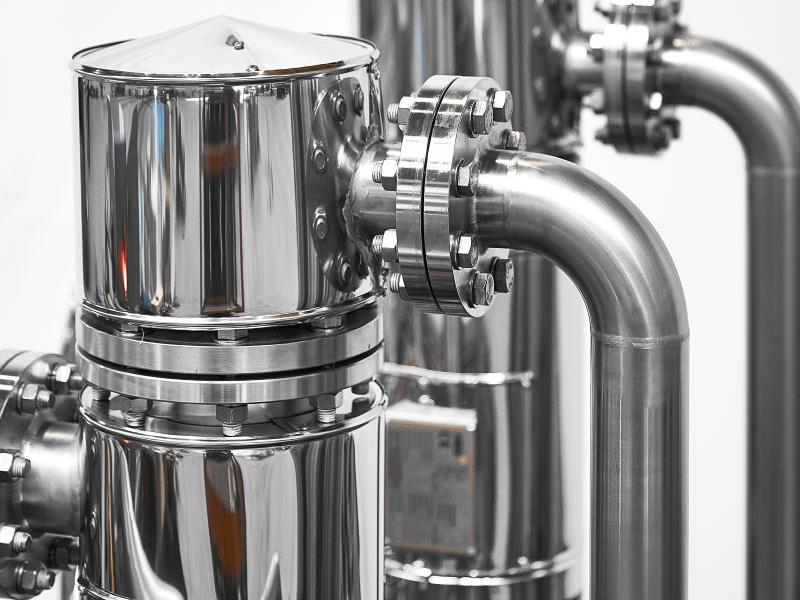According to a study published in the Journal of Loss Prevention in the Process Industries, the main causes of pipeline failures include corrosion, equipment malfunction and operational errors. These factors contribute to the need for costly repairs and downtime, further highlighting the importance of proactive maintenance and reliable equipment. Here, Chris Johnson, managing director at industrial bearing specialist SMB Bearings, delves into the significance of surface preparation and coatings for industrial bearings in pipeline applications.
Industrial bearings serve as vital components in pipelines, facilitating the smooth and efficient flow of oil, gas and various fluids. However, these bearings are susceptible to damage caused by friction, corrosion and wear — factors that can result in costly downtime and repairs for operators of oil and gas pipelines.
Meanwhile, a survey conducted by Ernst & Young found that 60 per cent of oil and gas executives identified unscheduled asset downtime as the biggest barrier to achieving optimal operational efficiency. This indicates that downtime and repairs pose significant challenges to the productivity and profitability of pipeline operators.
To mitigate these challenges and ensure optimal performance and durability, surface preparation and coatings for industrial bearings play a pivotal role. By exploring various surface preparation techniques and coating options, we can gain valuable insights to help pipeline operators, engineers and maintenance personnel make informed decisions when selecting the right coating solutions for their pipelines.
Surface preparation techniques
Surface preparation is a critical step in the coating process, as it ensures a clean and receptive surface for coatings. Three commonly used surface preparation techniques include shot blasting, grinding and cleaning.
Shot blasting involves propelling abrasive particles onto the bearing surface to remove contaminants, scale and oxide layers. This technique not only cleans the surface but also enhances its roughness, promoting better adhesion of coatings.
Grinding is another technique that removes irregularities, burrs, and imperfections from the bearing surface. By creating a smooth and uniform surface, grinding enhances the coating's uniformity and adhesion while reducing the risk of premature coating failure.
Cleaning is essential to remove oil, grease, dust and other contaminants from the surface. Different cleaning methods, such as solvent cleaning, alkaline cleaning, and high-pressure water jetting, can be employed based on the nature and severity of the contamination. Clean surfaces are crucial for achieving proper coating adhesion and performance.
Types of coatings for industrial bearings
Various types of coatings are available to enhance the wear, corrosion, and chemical resistance of industrial bearings. The choice of coating depends on the specific requirements of the pipeline application. Some commonly used coatings include thermal spray coatings, electroplating and polymer-based coatings.
Thermal spray coatings involve depositing a molten or powdered material onto the bearing surface using a thermal spray gun. These coatings provide excellent wear resistance and can be customised with specific materials such as ceramics, metals, or alloys to suit the operating conditions.
Electroplating is a process where a metal coating is deposited onto the bearing surface by electrolysis. This technique offers superior corrosion protection and can be applied with precision, allowing for controlled coating thickness and uniformity.
Polymer-based coatings offer exceptional chemical resistance and can withstand harsh operating environments. They can be tailored to provide specific properties such as low friction, high load capacity, and resistance to abrasion, making them suitable for diverse pipeline applications.
Key factors in coating selection
When selecting a coating system for industrial bearings, several factors must be considered. These include the operating conditions, substrate material and cost-effectiveness.
The operating conditions, such as temperature, pressure and exposure to chemicals, determine the coating's performance requirements. For high-temperature applications, coatings with thermal stability and heat resistance are crucial. Similarly, corrosive environments necessitate coatings with excellent chemical resistance.
The substrate material also influences the coating selection process. Different materials — such as steel, stainless steel or ceramics — require specific coatings to ensure compatibility and optimal performance. The coating must be compatible with the substrate to prevent galvanic corrosion and promote bonding.
Cost-effectiveness is a significant consideration when selecting coatings. While advanced coating technologies may have higher upfront costs, they can result in substantial savings by extending the bearing's lifespan, reducing maintenance frequency and minimising downtime.
Surface preparation and coating technologies
The pipeline industry has witnessed remarkable advancements in surface preparation and coating technologies in recent years. These innovations have greatly enhanced the durability and performance of industrial bearings.
One such advancement is the development of environmentally friendly coatings that minimise the use of hazardous substances. These coatings adhere to stringent environmental regulations while maintaining exceptional performance characteristics.
Nanotechnology has also made significant contributions to surface preparation and coating techniques. Nanocoatings offer enhanced properties such as increased hardness, improved wear resistance and superior corrosion protection. They provide a nanoscale barrier that shields the bearing surface from contaminants and extends its operational life.
Additionally, advancements in coating application techniques, such as plasma spraying and electrostatic deposition, have improved coating uniformity, thickness control and overall quality. These techniques enable precise application and reduce waste, resulting in more efficient and cost-effective coating processes. Surface preparation and coating technologies play a crucial role in reducing losses and downtime in oil and gas applications involving industrial bearings. Proper surface preparation ensures optimal adhesion of coatings, providing enhanced protection against corrosion, wear, and contaminants.
These coatings improve the durability and performance of bearings, reducing the frequency of maintenance and replacement. As a result, downtime due to bearing failures is minimised, leading to improved operational efficiency, cost savings, and uninterrupted production in oil and gas applications.
Nanotechnology isn’t the only unusual technology that can enhance maintenance practices in oil and gas pipelines. Another is unmanned aerial vehicles, or drones.
Drones in the oil industry
Drones offer significant potential for enhancing maintenance practices in oil and gas pipelines, directly contributing to the reduction of losses and downtime. Equipped with advanced imaging and sensing technologies, drones can efficiently inspect pipelines, detecting leaks, corrosion, or structural damage. Real-time data gathered by drones enables timely maintenance interventions, preventing costly disruptions and minimising environmental risks.
However, the effective operation of drones in this challenging environment relies heavily on appropriate industrial bearing selection.
Drones used in the oil industry are subjected to harsh operating conditions, including extreme temperatures, high winds and exposure to corrosive elements. They are required to navigate complex terrain, inspect critical infrastructure, and carry heavy payloads such as cameras and sensors. In such demanding circumstances, the reliability and durability of industrial bearings are paramount.
Industrial bearings play a vital role in the performance of drones, ensuring smooth and efficient rotation of propellers and other moving parts. Choosing the right bearings can significantly impact the overall efficiency, reliability and longevity of the drone.
Appropriate bearing selection involves considering factors such as load capacity, speed, temperature resistance and corrosion resistance. Drones used in the oil industry often require bearings that can withstand heavy loads and high rotational speeds while operating in extreme temperatures. They also need bearings that can resist corrosion caused by exposure to saltwater or other corrosive substances.
Failure of bearings in drones can have severe consequences, including catastrophic crashes, equipment damage and costly repairs. By selecting high-quality bearings specifically designed for the demanding conditions of the oil industry, operators can minimise the risk of bearing failure and ensure uninterrupted drone operations.
When choosing industrial bearings for drones used in the oil and gas industry, key characteristics and considerations include load capacity, speed capability, temperature resistance, and corrosion resistance. Coatings and lubrication are instrumental in optimising the performance and lifespan of industrial bearings used in drones, achieving reduced friction, increased efficiency, and enhanced overall functionality.
Corrosion resistant stainless steel bearings
In oil and gas pipelines, corrosion is a major concern due to the presence of aggressive fluids and harsh operating conditions. SMB Bearings' corrosion-resistant stainless steel bearings are specifically designed to withstand these challenging environments. With their superior corrosion resistance properties, these bearings minimise the risk of damage caused by corrosion, thus reducing the need for frequent repairs and costly downtime.
The stainless steel bearings offered by SMB Bearings are manufactured to the highest standards, ensuring reliability and durability. They are designed to operate smoothly even in demanding conditions, providing uninterrupted performance and minimising maintenance requirements.
By utilising specialist corrosion-resistant stainless steel bearings and leveraging knowledge from industry experts, oil and gas pipeline operators can significantly reduce downtime and repair costs, improving the overall reliability and productivity of their operations.
Minimising repairs and downtime
The use of appropriate industrial bearings is essential for reducing costly downtime and repairs in the oil and gas industry. Factors such as load capacity, speed capability, temperature resistance, and corrosion resistance must be considered when selecting bearings for pipelines and drones used in the industry.
The Journal of Loss Prevention in the Process Industries study on pipeline failures highlights the importance of proactive maintenance and reliable equipment to minimise costly repairs and downtime. By choosing high-quality bearings and leveraging technical support from SMB Bearings, operators can significantly reduce downtime and repair costs, improving the overall reliability and productivity of their operations.
Surface preparation and coatings also play a crucial role in enhancing the performance and longevity of industrial bearings, ensuring smooth and efficient fluid flow in pipeline applications. Recent advancements in surface preparation and coating technologies further contribute to the capabilities of these bearings.
By understanding the critical role of surface preparation, coatings, and appropriate bearing selection, professionals can make informed decisions to optimise the efficiency and reliability of their pipeline systems.
To learn more about surface preparation and coatings for industrial bearings, visit SMB Bearings’ website.






